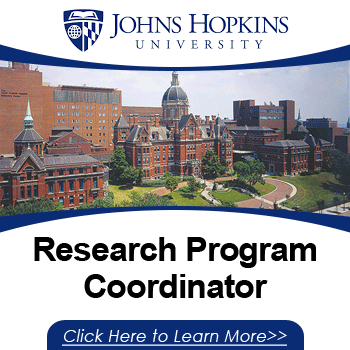
Post-Doc Trainee
Job Description
Full job description
Posting Details
Department
Epidemiology - 463501
Posting Open Date
07/30/2024
Application Deadline
Open Until Filled
Yes
Position Type
Postdoctoral Scholar
Position Title
Post-Doc Trainee
Vacancy ID
PDS004297
Full-time/Part-time
Full-Time Temporary
Hours per week
40
FTE
1
Work Location
Chapel Hill, NC
Position Location
North Carolina, US
Hiring Range
Dependent on Qualifications
Proposed Start Date
Estimated Duration of Appointment
12 Months
Position Information
Be a Tar Heel!
A global higher education leader in innovative teaching, research and public service, the University of North Carolina at Chapel Hill consistently ranks as one of the nation’s top public universities and is among is the top ten research universities in the nation for federal research expenditures as well as for federally funded social and behavioral sciences research and development.
Here at Carolina, our highly skilled postdocs play a vital role in our research enterprise and towards our overall commitment to research excellence. Across many disciplines, postdocs contribute to the intellectual vitality of the University. They provide innovative ideas and perspectives, foster a stimulating research environment and advance knowledge within their fields. Postdocs are crucial members of our scientific research workforce, contributors to our research outputs and an important reason why Carolina is one of the leading public research institutions in the country.
UNC-Chapel Hill offers postdocs comprehensive medical and vision coverage, paid leave, and benefits and services that support professional development and a healthy work/life balance. Chapel Hill regularly ranks as one of the best college towns and best places to live in the United States, a reputation guided by the diverse social, cultural, recreation and professional opportunities that span the campus and community.
Primary Purpose of Organizational Unit
The Department of Epidemiology is one of the seven departments located in the Gillings School of Global Public Health. The department’s primary focus is to the development and application of research methods to understand the patterns and causes of health and disease, and the application of that knowledge to improving the health of populations. We provide strong training in research methods and opportunities for the application of epidemiology to a wide range of health problems through our research. The achievements of our faculty, staff, students, and alumni have enabled us to become one of the leading academic departments of epidemiology in the world. The department has 30 Tenured-Tenure Track / 7 Joint Tenure-Track Faculty, 25 Fixed Term / 3 Joint Fixed Term Faculty, 120 Adjuncts, 19 EHRA Non-Faculty, 15 Postdocs, 34 SHRA (Staff), 44 SHRA Temporary and 202 Students. The department’s operating budget is 27 million a year.
Position Summary
National Research Service Award (NRSA) postdoctoral research fellowships are available in the Genetic Epidemiology of Heart, Lung, and Blood Traits Program at the University of North Carolina at Chapel Hill. The position is funded by the National Heart, Lung, and Blood Institute, NIH.
The goals are to support the training, career development, and professional growth of the post-doctoral fellow by fostering skills and knowledge in Genetic Epidemiology of Heart, Lung, and Blood Traits (GENHLB, https://hlbgenepit32.web.unc.edu/). The post-doctoral fellow will participate with mentors, other faculty, and peers in the Genetic Epidemiology Program in authoring publications, making presentations at scientific and/or professional meetings, and developing grant support. Responsibilities of the post-doctoral fellow are to work towards enhancing his/her substantive and methodological skills in genetic epidemiology and related disciplines.
The goals are to support the training, career development, and professional growth of the post-doctoral fellow by fostering skills and knowledge in Genetic Epidemiology of Heart, Lung, and Blood Traits (GENHLB, https://hlbgenepit32.web.unc.edu/). The post-doctoral fellow will participate with mentors, other faculty, and peers in the Genetic Epidemiology Program in authoring publications, making presentations at scientific and/or professional meetings, and developing grant support. Responsibilities of the post-doctoral fellow are to work towards enhancing his/her substantive and methodological skills in genetic epidemiology and related disciplines.
Minimum Education and Experience Requirements
A doctoral degree (PhD) in Epidemiology, Human Genetics, Biostatistics, Bioinformatics or related field or a MD, DDS, or DVM degree combined with training in human genetics or epidemiology at the PhD or Master’s levels (or equivalent) is/are required.
Required Qualifications, Competencies, and Experience
Due to Federally-mandated funding restrictions, the post-doctoral trainee
MUST be a US citizen or permanent resident.
A curriculum vitae reflecting scientific productivity in epidemiology, human genetics, heart, lung, and/or blood phenotypes and/or biomedical sciences is required.
Participation in this program requires a commitment of at least 40 hours per week on research and training, without supplemental compensation from the NRSA award. Trainees may be able to work a limited number of hours in addition to the 40-hour commitment, if explicitly approved by the Program Director based on its contribution to the fellow’s training and professional development.
MUST be a US citizen or permanent resident.
A curriculum vitae reflecting scientific productivity in epidemiology, human genetics, heart, lung, and/or blood phenotypes and/or biomedical sciences is required.
Participation in this program requires a commitment of at least 40 hours per week on research and training, without supplemental compensation from the NRSA award. Trainees may be able to work a limited number of hours in addition to the 40-hour commitment, if explicitly approved by the Program Director based on its contribution to the fellow’s training and professional development.
*Please mention you saw this ad on AsiansInAcademia.*
Be Seen By Recruiters at the Best Institutions
Create a FREE Profile to be Seen!






